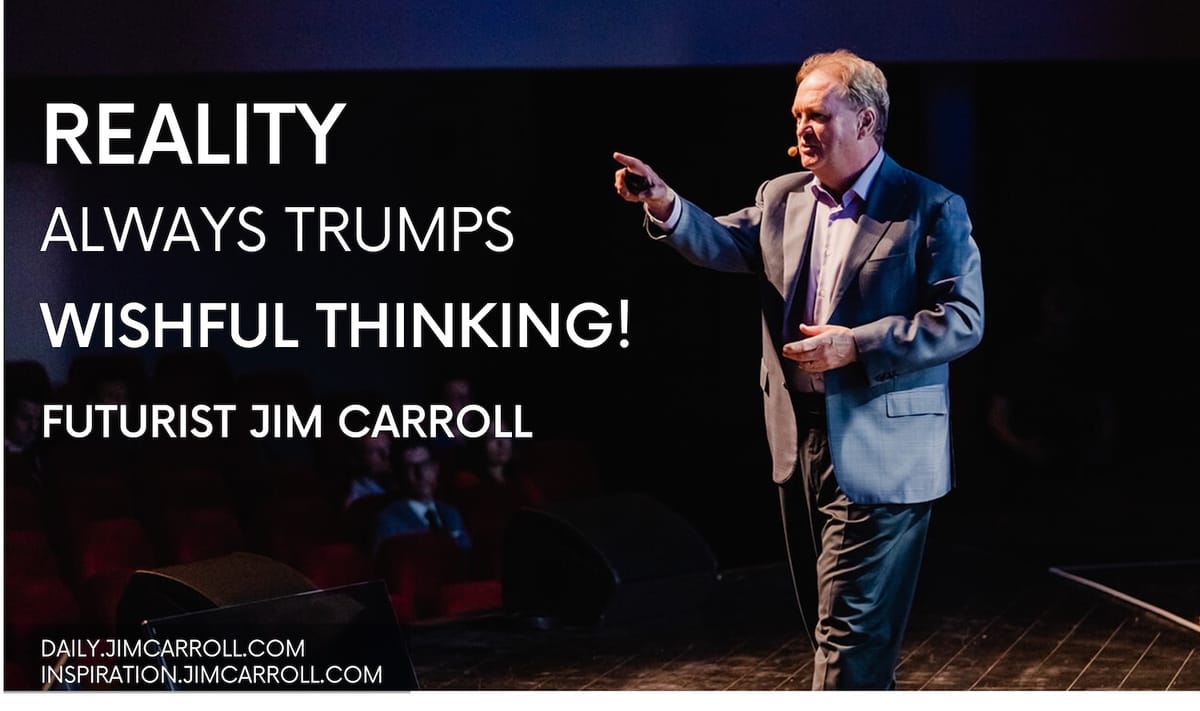"Reality always trumps wishful thinking!" - Futurist Jim Carroll
There's a reality gap.
A gap between an understanding of how industries are changing, and how people hope it will change. A gap between what it takes to solve deep, complex issues, and how people think they can be solved. A gap between the skills needed to thrive into tomorrow, and the skills that people need. A gap between the desire to preserve the status quo, and the reality of what the quo will do. A gap between what it takes to align with fast-moving trends, and what leadership teams think they need to do to deal with those trends.
A gap between the promises made by those who whitewash tomorrow and the reality of what will happen.
As I've said before, some people are a captive of their denial of reality, a prisoner to their delusions, and are forever trapped in disbelief of their impending disruption. Denial happens when people are confronted by reality but perpetuate their misbelief with the most dangerous of all drugs, which is denial itself. The result of this is that those who don’t like a trend don’t just oppose the trend, they now deny the reality of the trend itself!
But the fact remains: the ability of some people to make up their reality won’t absolve them of the consequences of their real reality - and it won't let them avoid the reality of what tomorrow will bring. This means that the uncanny ability of some to deny reality will have a huge impact on their potential success in their future reality!
From a corporate trends perspective, this new era of denial has a profound impact on the world of business. More organizations and the leaders who ‘lead’ them will make up false facts to deny the business model disruption which will soon put them out of business. It will lead them to pursue paths of obstruction rather than innovation, trying to avoid the inevitable. It causes them to choose to avoid what needs to be done, instead pursuing a path of what should be done.
The result is we will see an increase in the number of business and industry failures driven by accelerated denial, people who will miss out on the opportunities that tomorrow might bring, and entire economic regions falling behind instead of moving forward.
What’s the way out of this madness?
I have no idea – of all the trends I follow, this is the one that worries me the most.
Futurist Jim Carroll understands most trends, but not the one involving the ‘reality gap.’

